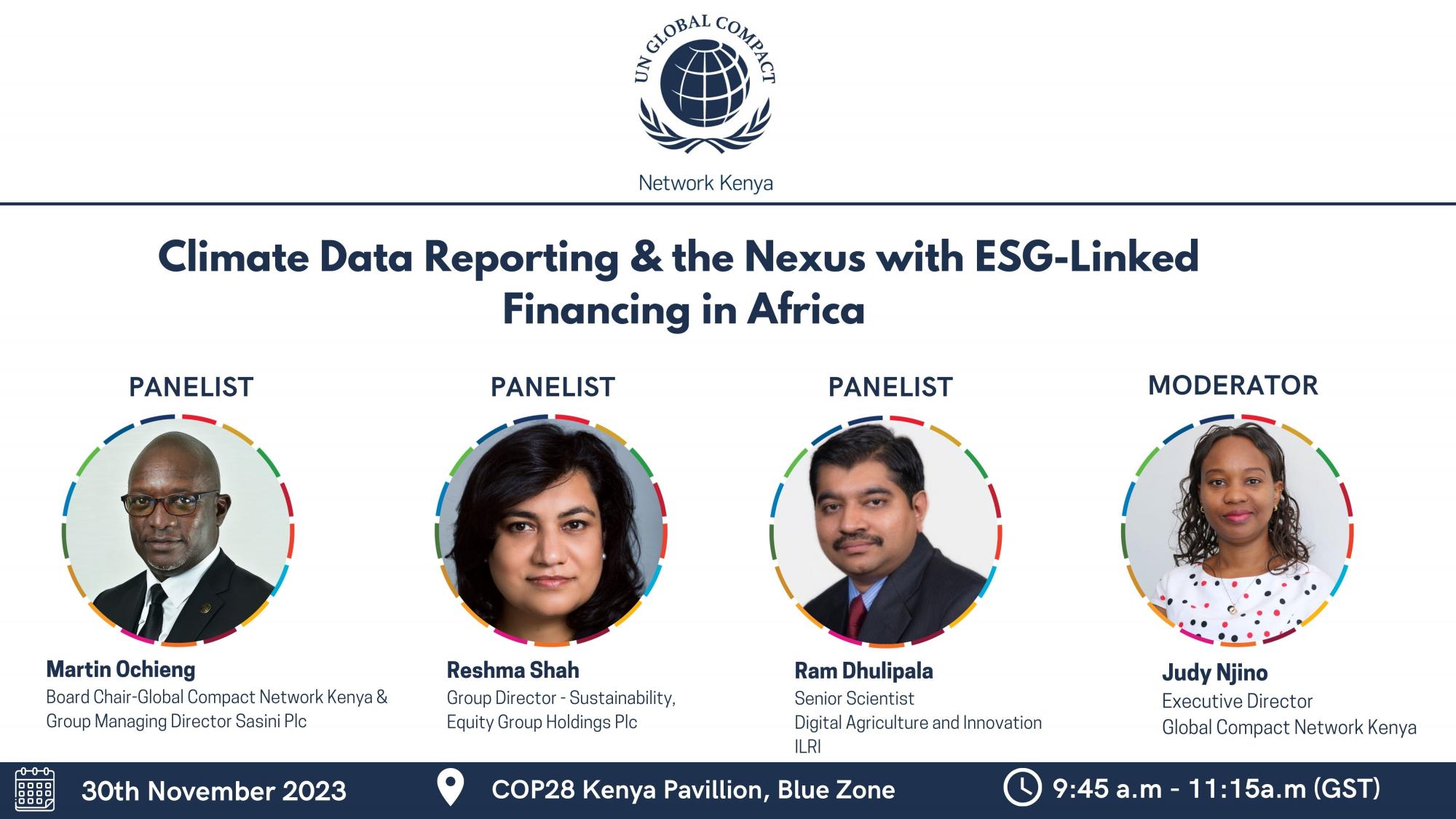
The nexus between climate data, sustainability reporting, and ESG-linked financing in Africa - 30 Nov
Core message
event summary
There is crucial room for growth in integrating environmental, social, and governance (ESG) principles in investments to tackle the climate crisis. Two ways to track progress on meeting these sustainability goals is through increased climate reporting. This includes improving climate data availability, integrating ESG factors into investments towards sustainable projects, and increasing stakeholder engagement through increasing data transparency.
On November 30, Global Compact Network Kenya hosted a side event at COP28’s Kenya Pavilion to discuss “The nexus between climate data, sustainability reporting, and ESG-linked financing in Africa.” The event covered the steps that can be taken to increase climate reporting to work towards more sustainable investments. Ram Dhulipala, panelist and digital agriculture and innovation scientist at ILRI, highlighted how climate data has been crucial to help farmers make de-risk decisions. He also explained the successful example of how the pipeline from research to industry to farmer works, through ILRI’s Index Based Livestock Insurance (IBLI). IBLI is an insurance that pays customers based on climatic conditions, utilizing climate data to determine these pay-outs. He left the audience with a sense of hope and something tangible to replicate.
Key Takeaways
-
Private sector representatives agreed that sustainability and climate risk are a mainstream risk to their core business - no longer a fringe risk
-
Banking business’ such as Equity Group are increasingly factoring in climate risk into their lending and insurance business
-
The banking business needs more availability and access to high resolution climate data. This is impeding the greater use and uptake of climate data